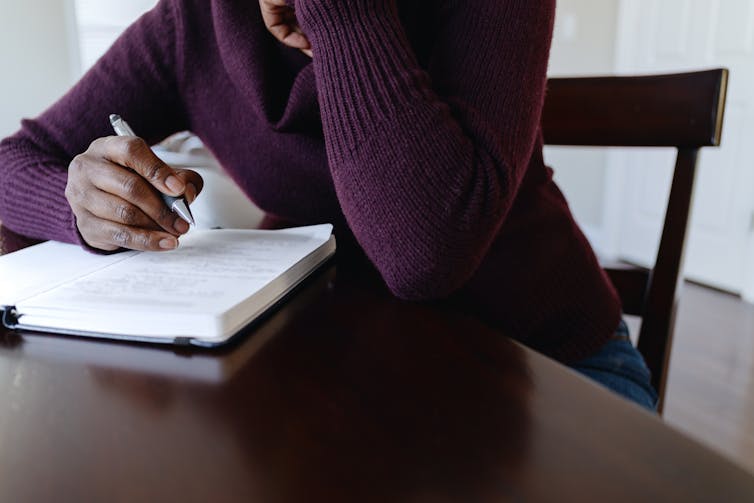I’ve finished a complete draft (a clean one) of my dissertation. Around 75,000 words, so about the size of a standard non-fiction study. While there are more processes to get through to reach that draft: annual reports, forms to fill, supervisors to meet and talk to, the actual work involved is the same as for most scholarly work if you already know enough about the subject. This is why the US has additional processes to check that the student has that knowledge. Australia doesn’t have Major Field exams and has limited coursework. It took me about five weeks all up to finish my coursework, in fact. We have to understand ethics for research, and how to work safely, and any languages for the research, and how to actually do the research, and the norms for the field we’re working in, and so forth and so on and… lots of small things, but, in my case, the only big one was learning about literary studies. I’d already done a lot of research in other disciplines and I already read all the languages, so my coursework was basically a matter of going through online modules and demonstrating I had the knowledge.
One entirely odd facet of doing three PhDs is the language side of things. For my first PhD I needed to read nine languages well. I couldn’t read all of those languages well enough (especially Latin, which I could not read at all) so I took a year off in the middle and did a Masters in Canada. That coursework taught me why the US and Canadian PhDs, with the hefty coursework load, are so very handy. It also taught me that my undergraduate degree was very rigorous, which is why I had most of what I needed before I began. I added Latin and palaeography to my skills in Canada and they are very useful!
For my second PhD I only needed five languages, and they were all ones I already knew. I’ve talked to so many fiction writers about this, and most of them did not need any languages except English. “How did you deal with archives and primary sources?” I asked. Some of them don’t. Others pay to have critical works translated or work with translations. Our minds were entirely boggled by each others’ approaches.
This led me to a new understanding. PhD theses (including exegeses attached to Creative Arts PhDs, which is what my second was) are each unique. Underlying skills are similar: research for original work (which is exceedingly different to the type of research I do to write a short story or a novel without a scholarly bent), the capacity to write, the capacity to edit, and an extreme level of patience with the processes of study and publishing.
I said that I’ve finished the thing, but I still have much administratrivia to do, and the copy edit to go through. My thesis will be submitted on 15 May, and it will be months before I know the result.
The need for patience is very familiar to me from my novels. Someones I wait months after the final edits are done for a novel to be published and sometimes years. COVID and the current economic crises have both elongated my wait times (and me being Jewish doesn’t help with some parts of the industry and makes no difference at all to others): I have two novels queued and do not know when they will emerge. My first PhD was beset by quite different crises, but with the same result. The examination took three years, which pretty much cost me my career, back then.
This (almost finished) PhD is different in one big way. The discipline I’m working in is the first I am not entirely comfortable with. I am far more an historian than a literary scholar. Working in Literary Studies has given me a solid appreciation of the work of literary experts. History is not easier, but it suits the way my mind works. I like assembling data and making beautiful patterns from it and explaining it to the world. Now that I understand that not all research does this and that it’s a good thing that there are different approaches (truly, I understand story far, far better now that I can see it from more than one discipline – it’s going to affect both my writing and my teaching, in good ways) my current work of non-fiction is suddenly a lot easier. I don’t have to read every bit of research written in the last 250 years in eleven languages to explain what needs to be explained. It still helps I have the languages, to be honest, but it also helps that I now look for who I’m talking to early on and that I pay far more attention to audience than I used to.
What does this add up to? First, even though I think of it as a dissertation, my PhD is a book. Now that I’m almost done with it, I can finish the book I began during my PhD intermission last year (that trip to Germany was for a purpose).
Two books in a year? Not quite. My earlier work is coming back to haunt me and I may have a third book, which is short essays and thus only needs editing. If this happens (and right now it looks likely) it’s a different type of book again, with quite different research. Short essays don’t need the deep and long research. They take somewhere between an hour (if I already know the subject and have the book I’m writing about in front of me) to about three days. The book adds up, over time, to about 8 months’ work, not three to four years.
Why do I calculate these things? I’m ill (and finally being a bit more open about it) and can’t do all the things I used to do. And yet I’m writing more than I ever have. Short stories (when someone asks) and novels and non-fiction. All these doctorates have helped me understand how much work I need to put in for my various types of writing.
Way back when I was a professional reviewer (a long, long time ago) one of the biggest issues I found with many works, was that balance between the right amount of research, taking the right direction for the research, and keeping in mind that the reader will have the book in front of them. All books need to be readable for their audiences. Those writers who hit this successfully every single time (and you can see some of these simply by looking at the work of other Treehouse writers – I share the Treehouse with amazing writers) can be trusted by their audience. You can pick up a book by them and know it will do what it is supposed to do and that you will be entertained, and often be made to think, and be delighted.
My writing is too diverse for this. For example, I’m untrustworthy for entertainment because my first PhD was so very not entertaining. It wasn’t supposed to be. In fact, I was in huge trouble for the first two years because, as my main supervisor said, “The reader is not supposed to want to turn the page.” This is why most theses are unpublishable as they are and why I didn’t even seek to get that first one published: I had to drain all the joy out to get it through examination.
I’ve learned a great deal over the years, and I managed to be properly scholarly without as much desiccation in the new thesis. It still can’t be published without significant changes. A dissertation is quite different to a book for the wider public because its audience is entirely different.
I still don’t believe anyone needs three PhDs, even if I end up with three myself… but I am in love with the amount of learning along the way. Knowing the difference between writing for academics, for teachers, for the general public and for myself: not a bad outcome. Knowing when to stop researching and why to stop researching for about ten different types of books: what every writer needs.
Let me finish the last unfinished thought and then I’ll get back to work. What is that thought? I used nine languages for the first PhD, didn’t I? It was a Medieval History book, and I read over 139 primary sources (Old French epic legends, Middle English Arthuriana, Latin chronicles and the like), and I had to have both the medieval language and the modern language and… it was so much fun. For years I was the world expert in Old French insults: I still teach how to use them effectively in fighting scenes.
Remember it was five languages for the second PhD, which was a time travel novel and a dissertation? I should have learned an extra language, but I discovered that Old Occitan was easy to read when one knows Latin and various dialects of Old French. I have the manual for it. I read through it once and realised that was enough to read most texts in Old Occitan. A friend once called this “the Medievalist advantage.” I try to say everything in the paragraph pompously because, honestly it sounds pompous.
The only languages I needed for the current PhD were English and French and maybe a little Spanish. That’s all. I learned the disciple, not extra languages.
There have to be PhDs where one only needs one language, but I’ve not undertaken any. Why? There’s a reason for the languages. They open up concepts and give exciting new insights. There is very little research that’s not better with knowledge of more languages. Think about it. Isn’t my life better because I can be rude to idiots in Old French?



